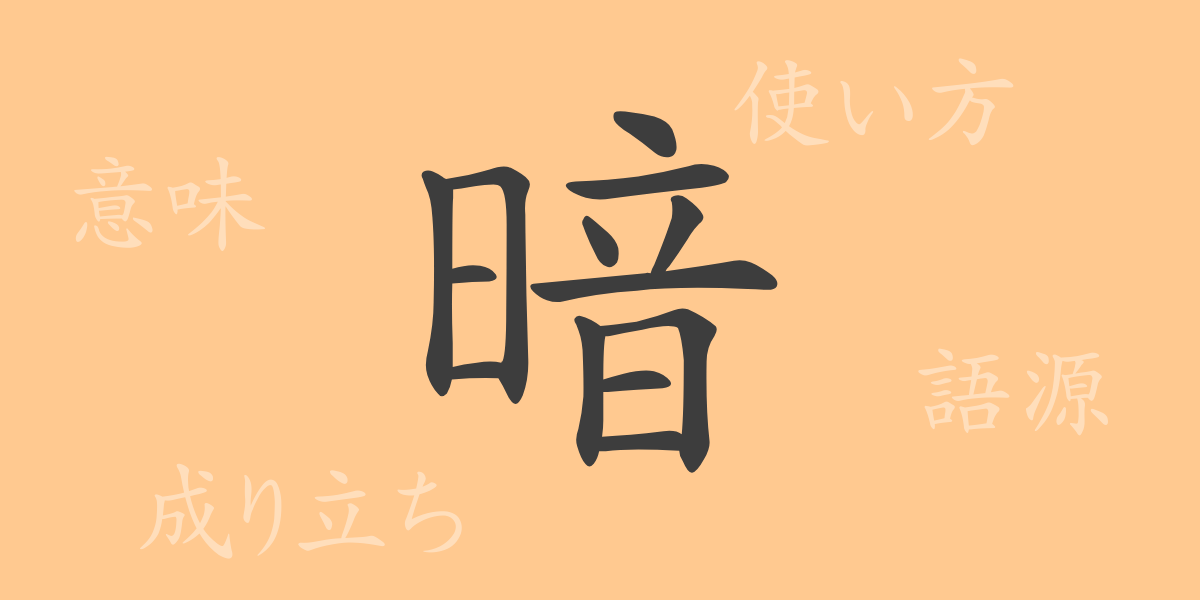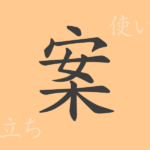“
The beauty of Japanese lies in its complexity and rich expression. The meanings embedded in a single kanji character can be profound, often closely linked to our emotions and daily lives. ‘暗’ (An) is a commonly used kanji in Japanese, integral to our everyday communication. This article explores the kanji ‘暗’, delving into its origins, meanings, usages, and the expressions that utilize it.
Origins of 暗 (An)
The kanji ‘暗’ originated from an ancient Chinese pictograph representing the setting sun. Initially depicted as the sun dipping below the horizon, it has simplified over time to its current form. This character has come to symbolically represent the absence of light, and metaphorically, a lack of knowledge or clarity.
Meaning and Usage of 暗
‘暗’ primarily means ‘not bright’ or ‘lacking in light,’ but it also conveys more abstract notions such as ‘unclear’ or ‘difficult to understand.’ Additionally, it can mean ‘hidden’ or ‘invisible.’ This kanji is used as an adjective and verb, and metaphorically in expressions.
Readings, Stroke Count, and Radical of 暗
The kanji ‘暗’ is used in various contexts in Japanese, each with different readings.
- Readings: On’yomi (on reading) is ‘An’, Kun’yomi (kun readings) are ‘Kura-i’, ‘Kura-mu, ‘Kure-ru’.
- Stroke Count: ‘暗’ consists of 12 strokes.
- Radical: The radical is ‘日’ (Niti), related to the sun and day.
Phrases and Proverbs Using 暗
Many idioms and proverbs include ‘暗’, each with unique meanings. For example, ‘暗記’ (Anki) means ‘to memorize,’ ‘暗黙’ (Anmoku) refers to an understanding unspoken. ‘暗中模索’ (Antyuumosaku) describes ‘groping in the dark’ or searching for a solution without clear guidance, and ‘明暗を分ける’ (Meian-wo-wa-keru) means ‘to determine success or failure.’
Summary of 暗
The kanji ‘暗’ symbolizes the richness of Japanese expression through its deep meanings and varied applications. Representing both literal and figurative darkness, it conveys nuances of emotions and situations. Enhancing our understanding of ‘暗’ enriches our comprehension of language and facilitates more nuanced communication.
“

























